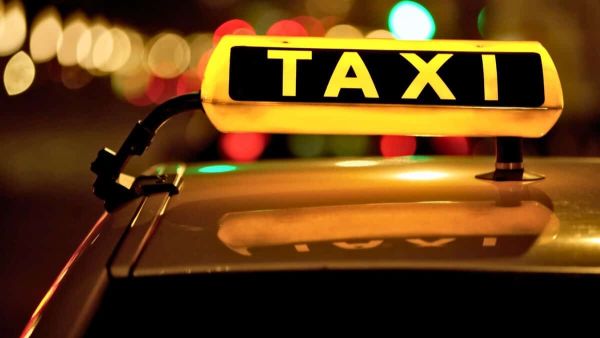
The Indian Federation of App-based Transport Workers (IFAT) and Telangana Gig and Platform Workers’ Union (TGPWU) responded to the newly announced Motor Vehicle Aggregator Guidelines 2025 with a lukewarm reception, welcoming certain sections and vehemently opposing others.
In a statement released on July 2, the IFAT-TGPWU coalition detailed its nuanced take on the legislation as it stands, separating out features it appreciates and features the government must improve.
IFAT-TGPWU approved
Mandatory health insurance of Rs 5 lakh and term insurance of Rs 10 lakh for all app-based drivers
This provides important job security and guaranteed compensation for drivers previously unrecognised for their labour.
Drivers’ right to work with multiple platforms, essential for protecting income opportunities
The legislation allows drivers to work with competing platforms, rather than retaining app exclusivity, diversifying employment opportunities and widening the sources of income drivers have access to.
Focus on induction training, background verification, and vehicle safety to safeguard passengers and drivers.
These measures essentially highlight the need for extensive background checks to establish the credibility of both drivers and their customers, for the enhanced safety of all stakeholders involved.
Inclusion of Divyangjan-friendly vehicles and targets for electric mobility promotes accessibility and sustainability.
Inclusion of such vehicles will widen the market of consumers as well as make the services more inclusive and friendly for public use. On the other hand, there were a number of significant issues that IFAT National General Secretary and TGPWU president Shaik Salauddin singled out in the statement.
Why no uniform fare policy across India?
The Central government’s planned legislation also leaves fare policies up to individual states to further flesh out on their own, leaving drivers and consumers both prone to unfair and unpredictable transactions. The statement further adds, “The Government of India continues to allow state-wise fare policies and uncontrolled aggregator pricing models. IFAT and TGPWU strongly demand a national, uniform fare structure to protect passengers from unpredictable pricing and ensure fair earnings for drivers.”
Surge and peak pricing hurting both sides
The proposed guidelines allow fares to double and even triple regular prices during high-demand surge periods, which the coalition claims harms both consumers and drivers. The statement further elaborates on the increased danger drivers encounter during surge periods.
“Drivers suffer because even though fares increase, aggregators retain a large share, and drivers face backlash from angry customers. Such pricing increases public frustration towards drivers, leading to verbal abuse, negative ratings, and even physical threats,” read the statement.
Customers, drivers both want fair, transparent fare regulation
The model, as it stands sans regulations, offers no relief to either customer or service provider – arbitrary pricing by individual platforms without regulations represents the opposite of public welfare, according to the statement.
Illegal bike taxi operations must be stopped
The lack of regulation against white number plate (private) vehicles being used for taxiing purposes also irked the coalition, reminding the Telangana Government to take due measures against such operations. “These services compromise passenger safety, evade taxes, and hurt the livelihood of licensed taxi, auto, and bike drivers,” the statement clarified.
High financial burden on aggregators, risk being passed to drivers
The heavy financial burdens placed on taxi aggregator platforms, like the Rs 5 lakh license fees and up to Rs 50 lakh security deposits, may well be handed further down the chain and placed on individual drivers to fulfil through increased commission rates or deductions brushed under the rug.
Lack of worker representation
The coalition further denounced the exclusion of the IFAT-TGPWU from the discussion so far. Calling for renewed discussion on the legislation with active participation accorded to the unions representing thousands of drivers, the statement said, “This undermines democracy and ignores the voices of those most affected.”
Demands put forward by IFAT-TGPWU addressed a myriad of concerns as raised in the statement. The demands, as the statement put it, were the following:
- The Government of India must introduce a uniform, transparent fare structure across states to protect passengers and ensure predictable, fair earnings for drivers
- Immediate ban on illegal bike taxi operations using private number plates
- Telangana and other state governments must not implement these guidelines blindly, worker unions like IFAT, TGPWU must be part of any monitoring and enforcement process
- No surge pricing beyond reasonable limits; customers and drivers should not be victims of price exploitation by aggregator algorithms
- Gig workers must be recognised under labour laws with proper social security and dispute resolution mechanisms.
IFAT-TGPWU leader Salauddin was quoted as saying, “When fares increase by 2x or 3x, passengers blame drivers, but the truth is, both drivers and passengers are suffering while only app companies profit.”
Salauddin’s words echo the sentiments of drivers as enlisted in the statement regarding the downsides of aggregator models’ domination of price-setting. He also spoke against the arbitrary pricing system, as well as the decommissioning of private vehicles used for ferrying services.
“We need fixed, fair fares across India, strong state enforcement, and an end to illegal operations like bike taxis without yellow plates. Only then can we ensure safety, dignity, and fairness for both customers and workers,” he said.
-
Josh Tongue cannot survive as a Test bowler purely by mopping up the tail

-
5 runs 7 wickets: Bangladesh lose 1st ODI after humiliating collapse vs Sri Lanka

-
Trump ramps up attacks against Zohran Mamdani, New York Mayor contender

-
Tottenham star 'set for Daniel Levy talks' over £56m transfer plot

-
PM Modi meets Ghana President Mahama, discuss ways to expand cooperation in key sectors
